Japanese language
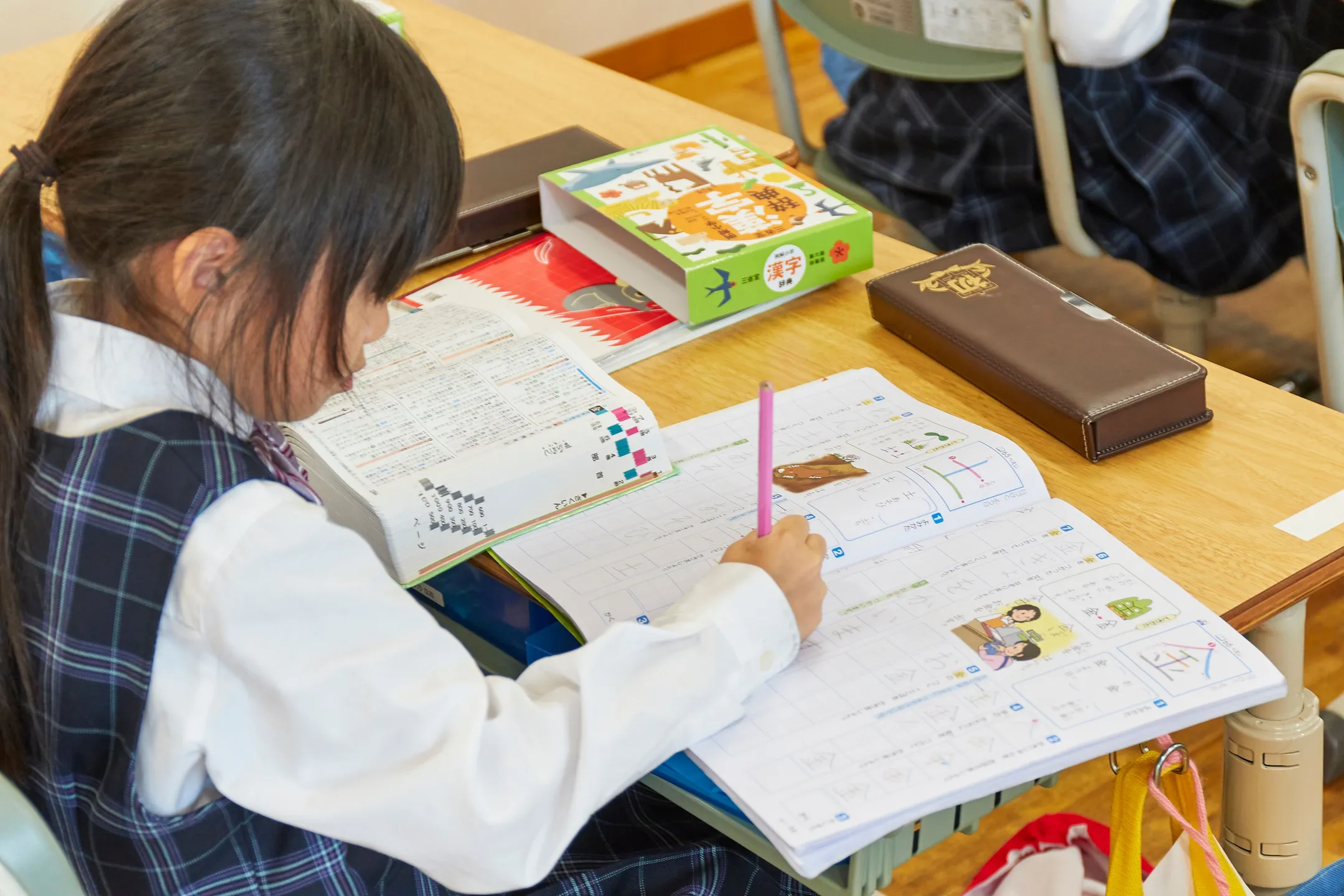

In Japanese language classes, students read literary works, write a essays about themselves, and develop an understanding of written Japanese in order to foster logical thinking as well as cultivate sound, rich interaction, and human decency. Vocabulary is expanded and language skills (speaking, listening, writing and reading abilities) are enhanced through various class activities.
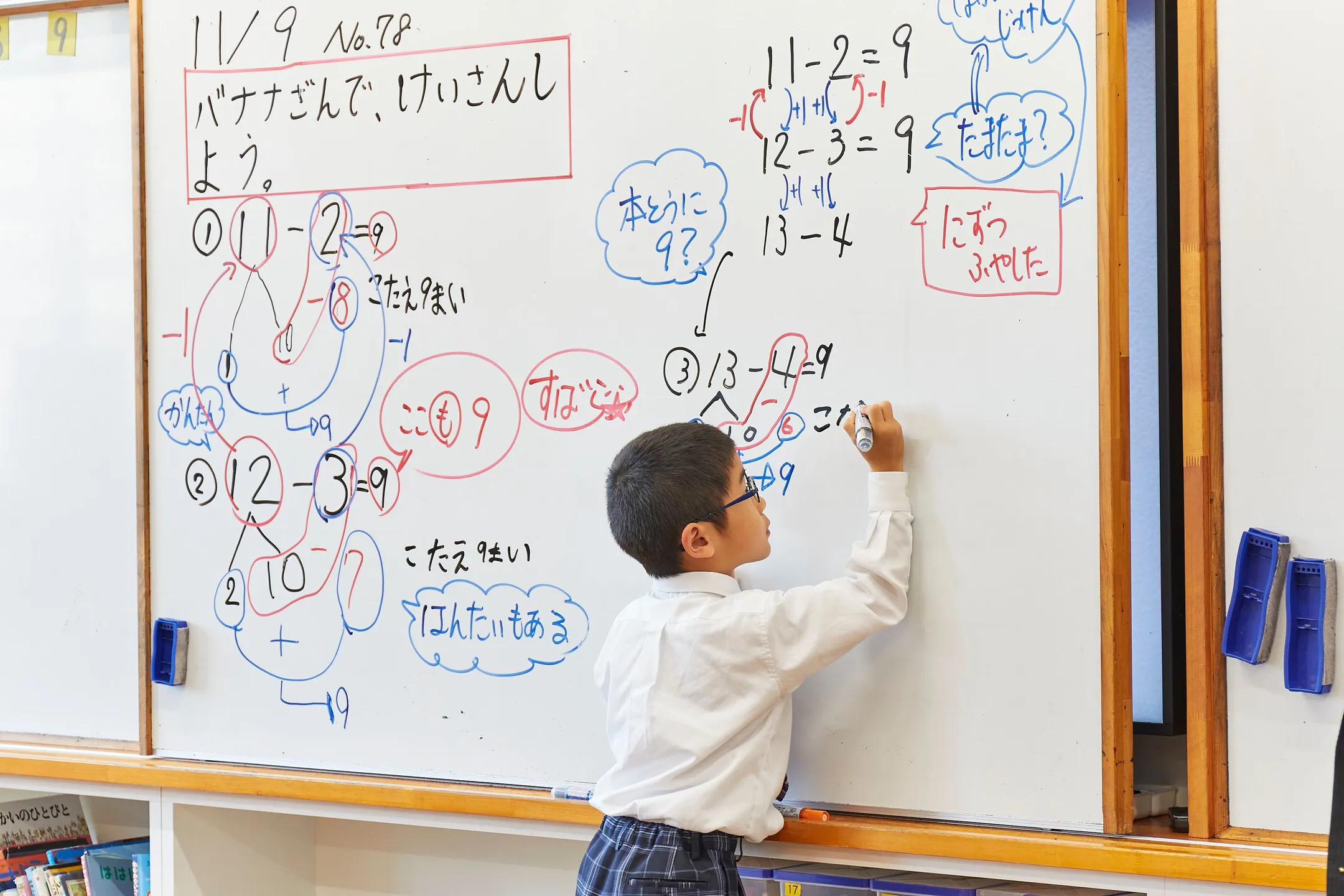
Our mathematics classes are designed to help children to learn how interesting mathematics is, as well as to develop intellectual curiosity and cultivate a positive attitude towards difficult challenges. Students are expected to acquire a mathematical way of thinking and the ability to apply their mathematical skills to other subject areas, including communication skills. In class, teachers help students to foster logical thinking power by solving problems in mathematics.

In science class, emphasis is placed on prioritizing learning in which children come into close contact with nature and develop an understanding of natural phenomena through the pursuit of curiosity. For this purpose, classes are conducted centering on “observation” and “experiments.” Students perform hands-on experiments that inspire curiosity and wonder, rather than manual-based experiments, through which they discover reasons for unknown natural phenomena, thereby cultivating a scientific way of thinking.
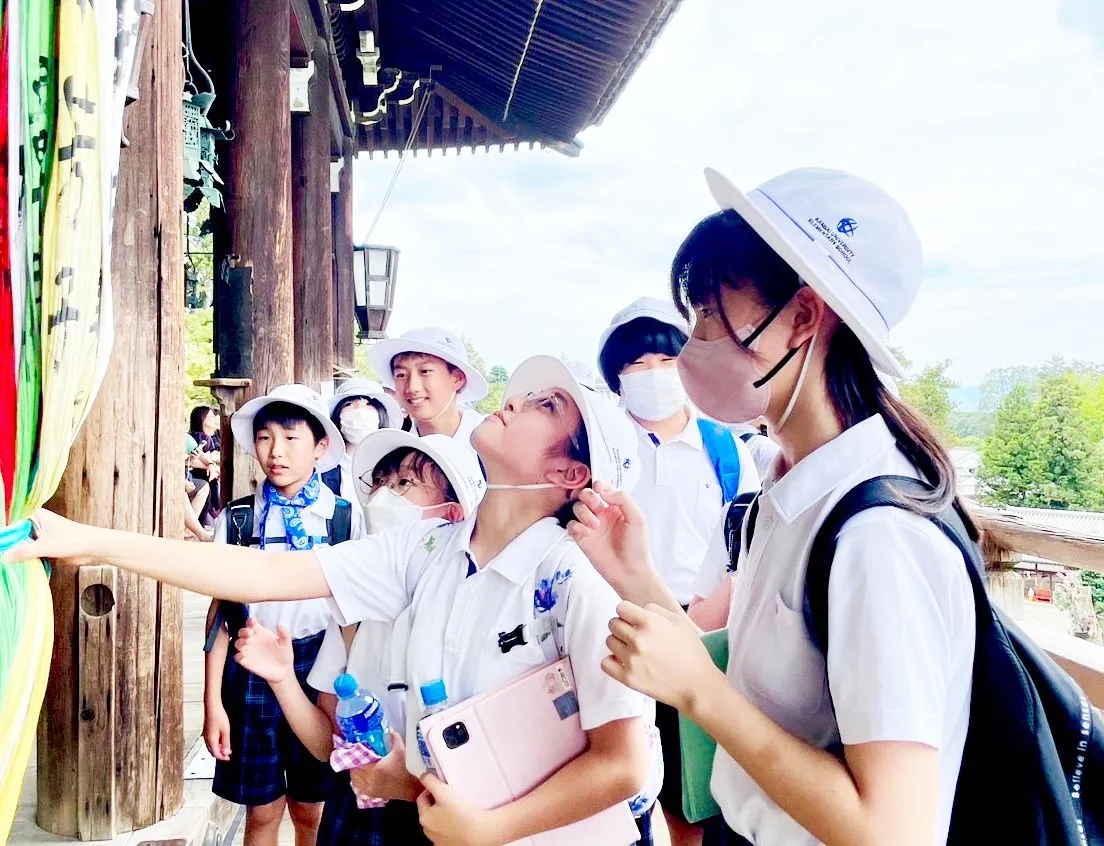
Our curriculum for social studies incorporates a lot of fieldwork and lectures delivered by guest instructors. Students in the middle grades of Elementary School have opportunities to visit a disposal center, filtration plant, local farms, and supermarkets to collect information and write reports. For those in the higher grades, various hands-on learning programs are implemented, including rice-planting experience, an auto plant tour, and a study tour to the Hiroshima Peace Memorial. Students are expected to develop an ability to look closely at social situations and actively participate in society, by organizing and analyzing the information collected through these activities.

We implement a six-year integrated English education program to cultivate comprehensive English abilities: listening, speaking, reading, and writing. Children in the first and second grades learn English for 15 minutes every morning (as part of Module learning) in an enjoyable way, and the third and fourth graders take 45-minute English lessons three times a week; the fifth and sixth graders, four times a week. Students also have various hands-on learning opportunities, including a school trip to Australia.
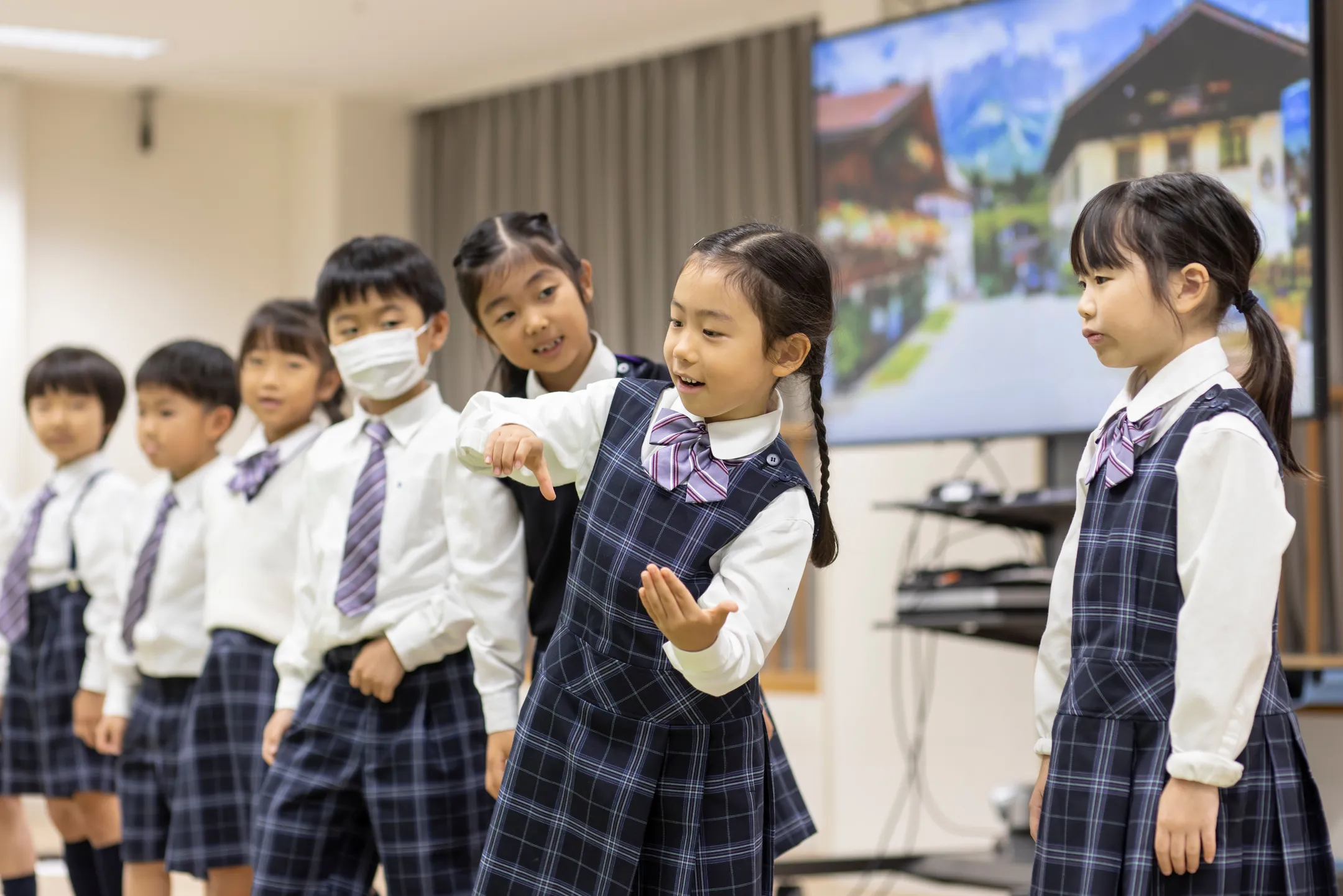
Life environment studies, designed for young children to increase awareness of their neighbors and communities and to understand the importance of learning and knowing, is a subject that serves as a starting point for education. In class, children engage in a wide variety of activities, ranging from nature discovery led by nature guides throughout the year, to rich contacts with nature, and interaction with people from different cultural backgrounds. Individual children are guided to cultivate awareness and interest through these hands-on experiences.

Students start to practice singing in chorus from their early school years, through which they find pleasure and comfort in working together with one mind and finding harmony in mind and sound. Children are also asked to think about how they would like to express a piece of music, thereby activating their imagination and enhancing their power of expression. They also experience the joy of understanding and expressing music.
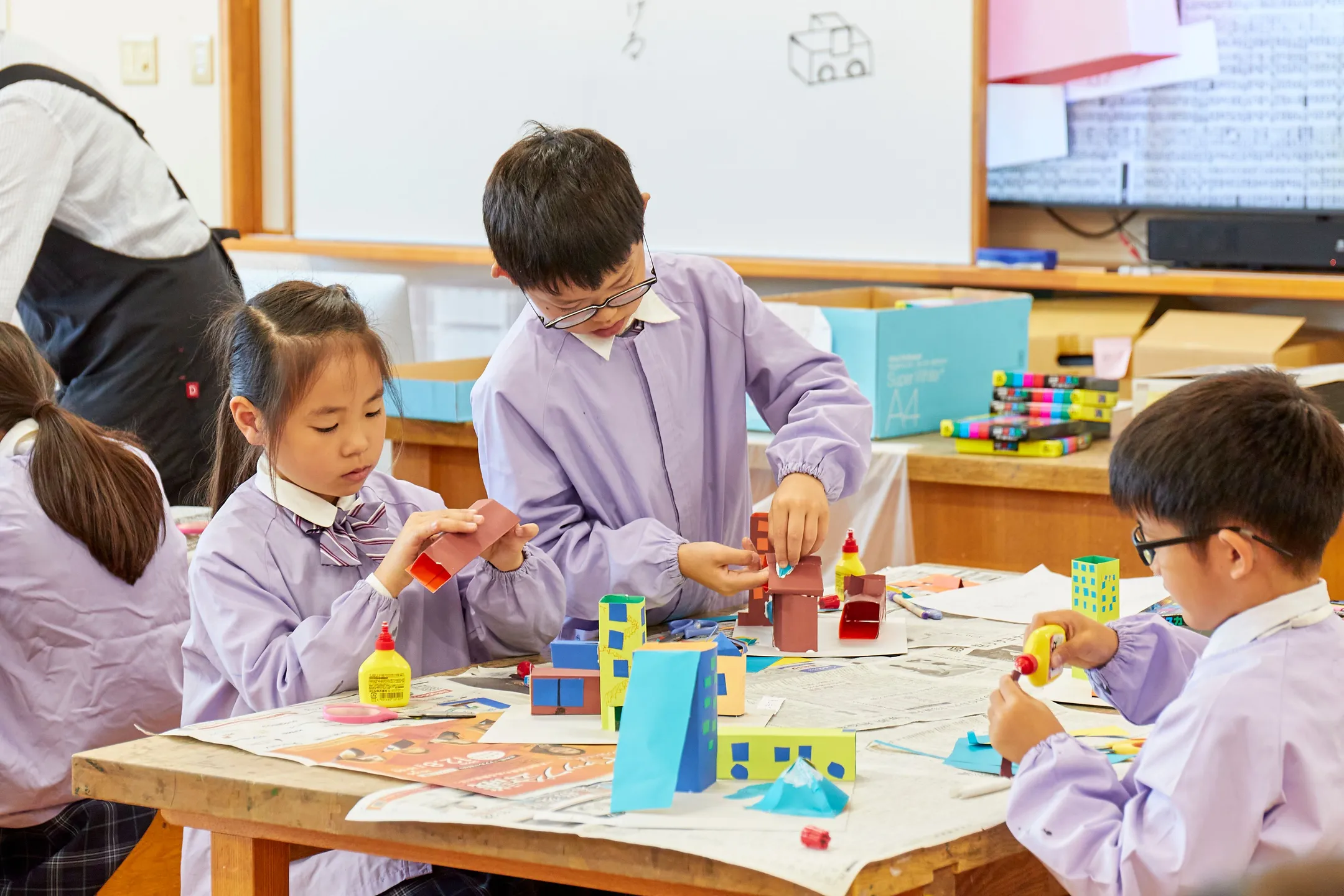
Children develop such skills as observation, visual thinking, and sense perception through various arts and crafts activities that encourage individual differences. Children’s ability to synthesize ideas, expression, and appreciation is synergistically developed by having discussions about what they think and feel about artworks, visualizing concepts in their mind, and expressing their individuality in artworks.

Home economics class deals with a wide variety of matters directly linked to home life under the catchphrase “Make life more affluent.” Curriculums are designed for students to look at their families and family life, foster an awareness of being a family member, and enhance efforts to make their lives better. Children learn what is useful in everyday life in an enjoyable way.
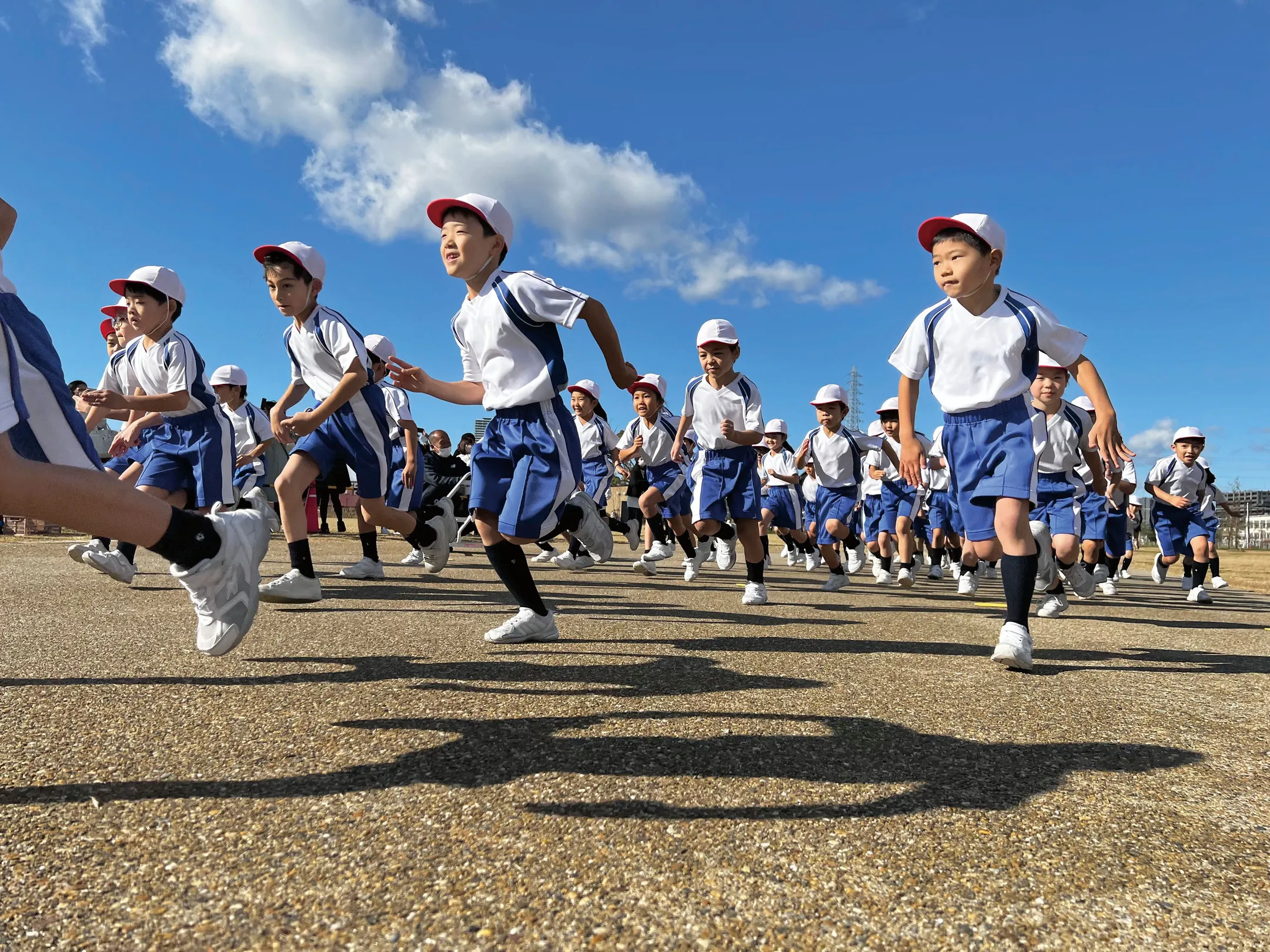
Physical education plays a vital role in enhancing athletic performance, building physical strength, and promoting the ability to think and act. This subject allows children to interact together to a common goal and develop cooperation and teamwork skills. Physical education also teaches the value of regular exercise to children. The physical training is conducted using our fully-equipped facilities, such as an artificial turf field, large sports arena, martial arts training hall, and heated indoor pool.
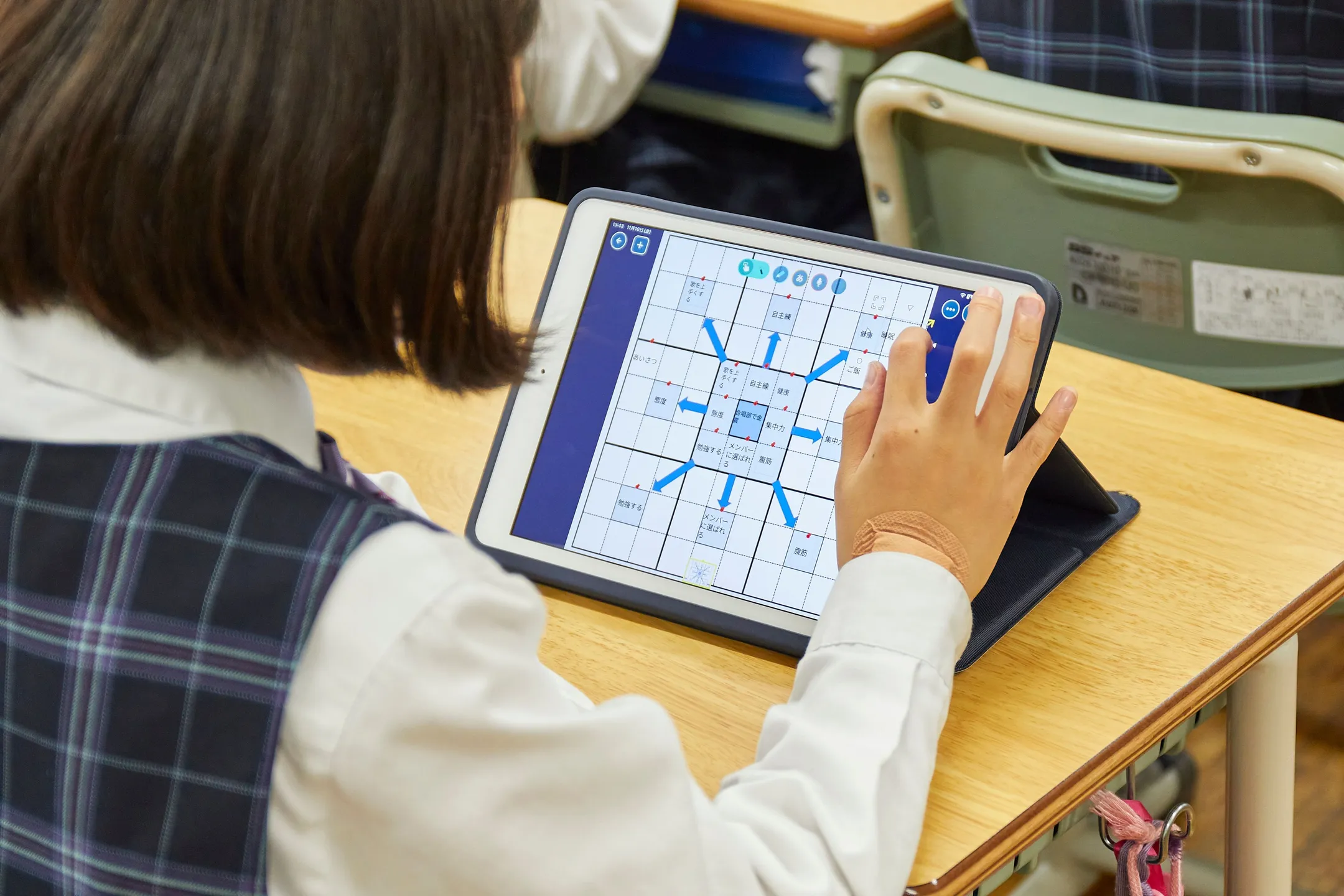
Children learn the value of life, appreciate consideration towards others, and develop a sense of right and wrong. Our efforts are also devoted to the development of unique materials to deepen children’s understanding of themselves, as well as understanding other people and their different values; focusing on ways of life and thinking. Moral fiber is also strengthened by establishing the habit of exchanging greetings and taking responsibility for cleaning.
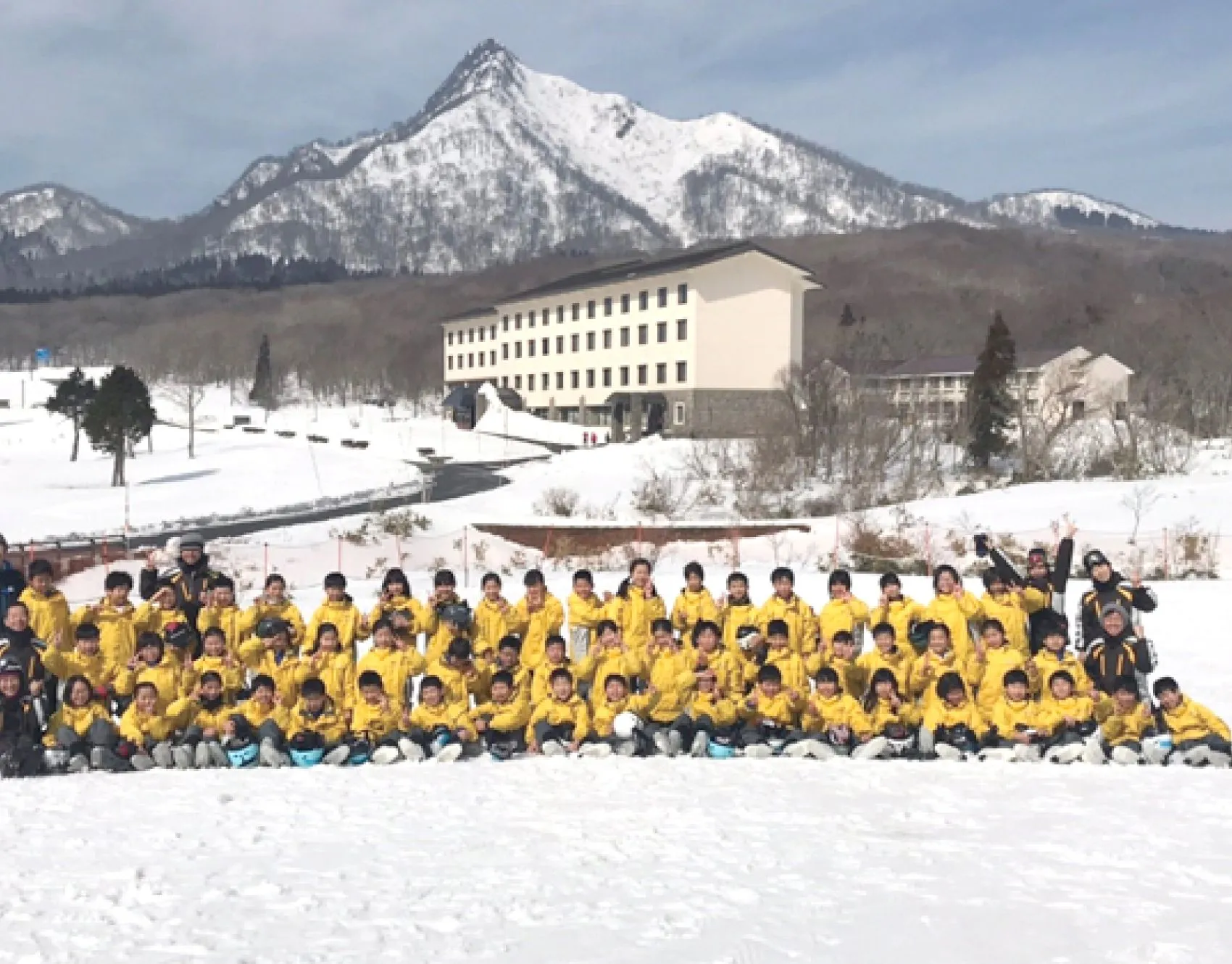
Children from the first to third grades stay in the Kogakukan seminar house, located in the Takatsuki campus. They experience various activities in a natural environment, including hiking, playing in the river, and fostering a spirit of friendship. Fourth graders ski in Inuyama, Aichi Prefecture. Fifth graders experience farming and fishing in Minami-Awa, Tokushima Prefecture. Students in the sixth grade go to Australia for their school trip, where they enjoy cross-cultural exchanges. This program provides students with a wide range of hands-on learning activities.
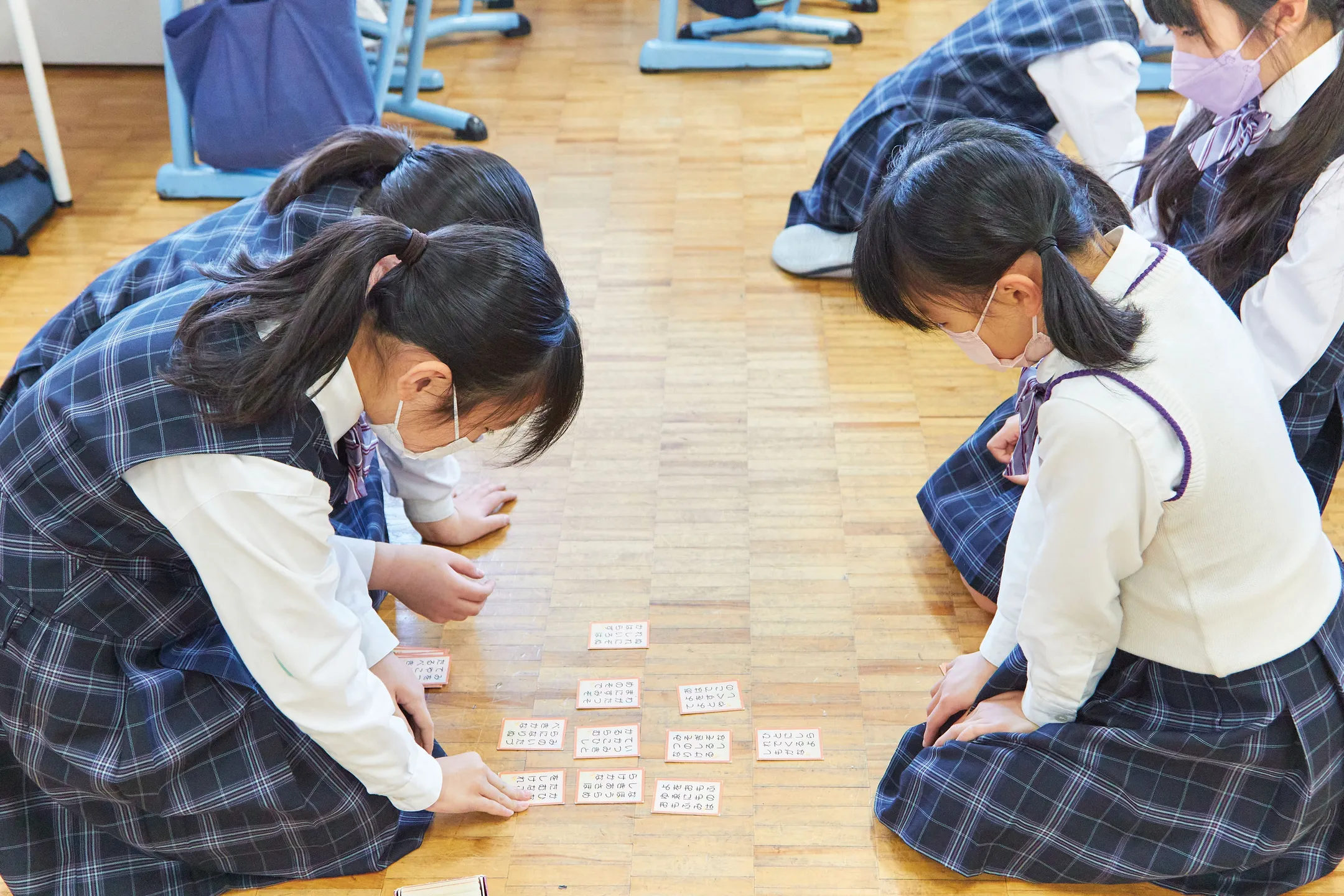
A 15-minute time slot in the morning is spent on studying Japanese, mathematics, and English. First and second graders learn English joyfully, mainly from a native speaker. An effective combination of English learning and various physical movements, such as jumping or running on the spot, helps to energize their minds. Those in the third grade and higher also engage in module learning, which contributes to a more rapid and secure accumulation of knowledge. The activities include reading aloud and quizzes.
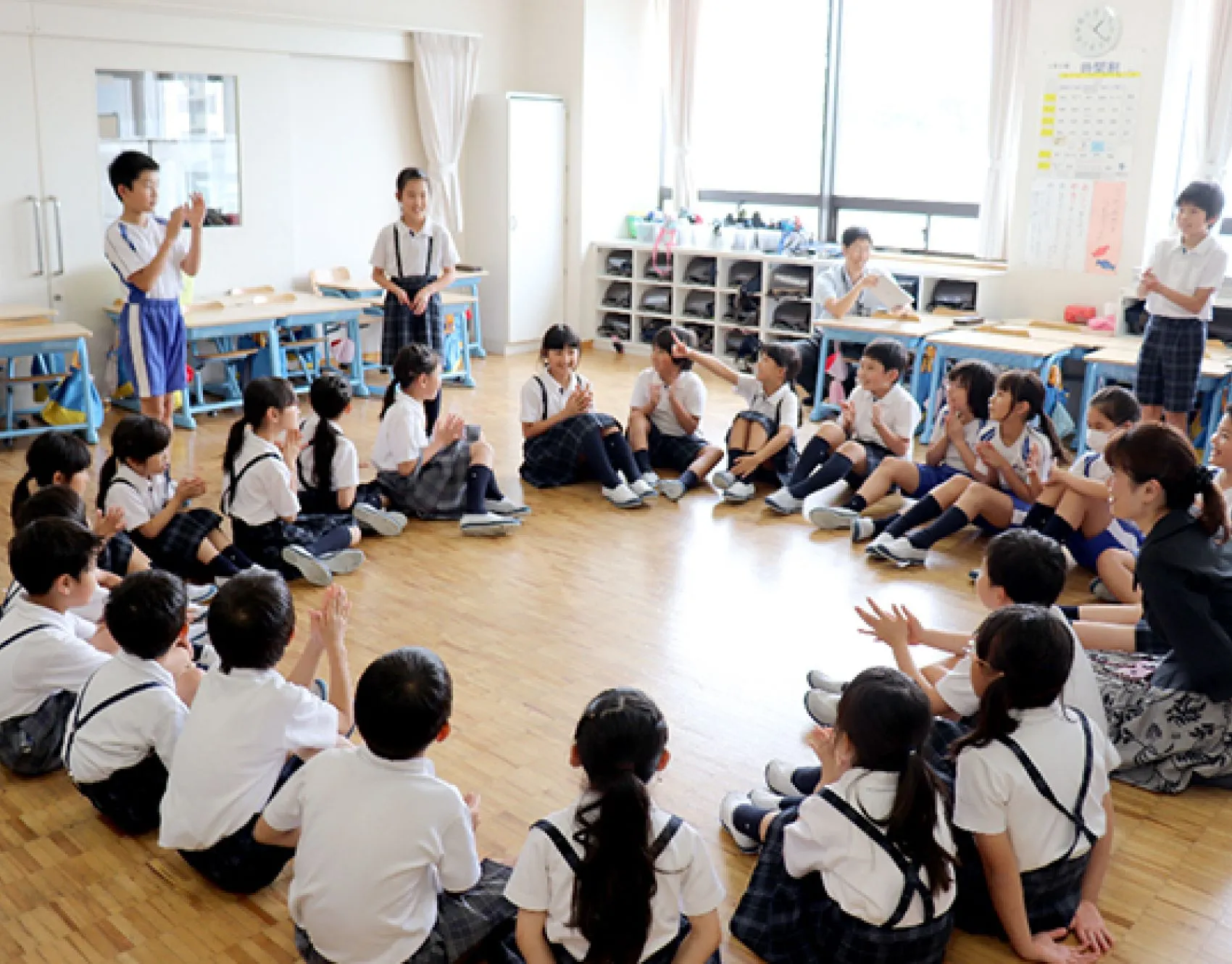
We encourage children to interact with those in different grades and schools (Kansai University Junior and Senior High School) and develop closer relationships with others, through various activities (during lunchtime and playtime, going home in groups, etc.). For instance, you can see sixth graders playing with first and second graders during lunch break.